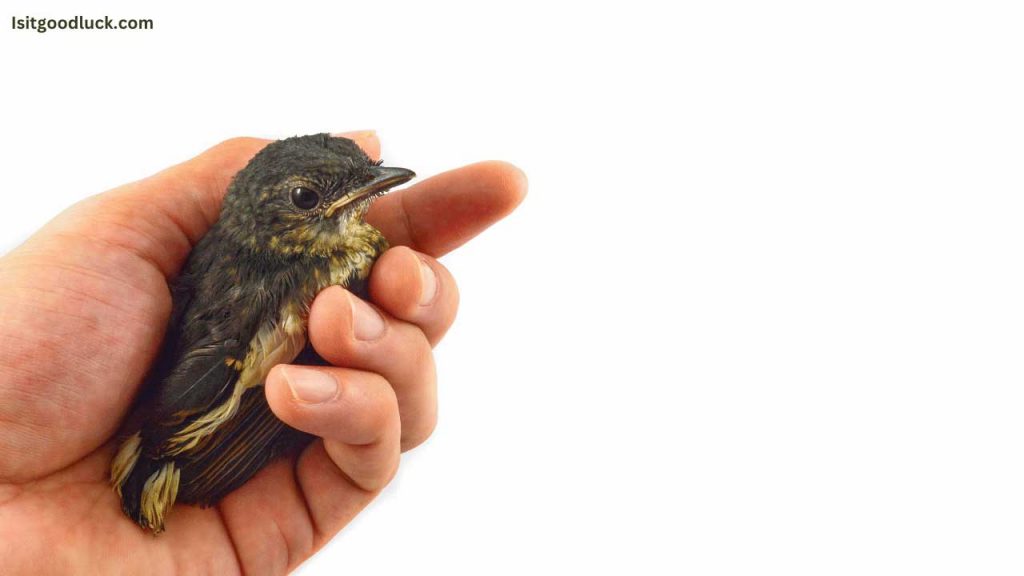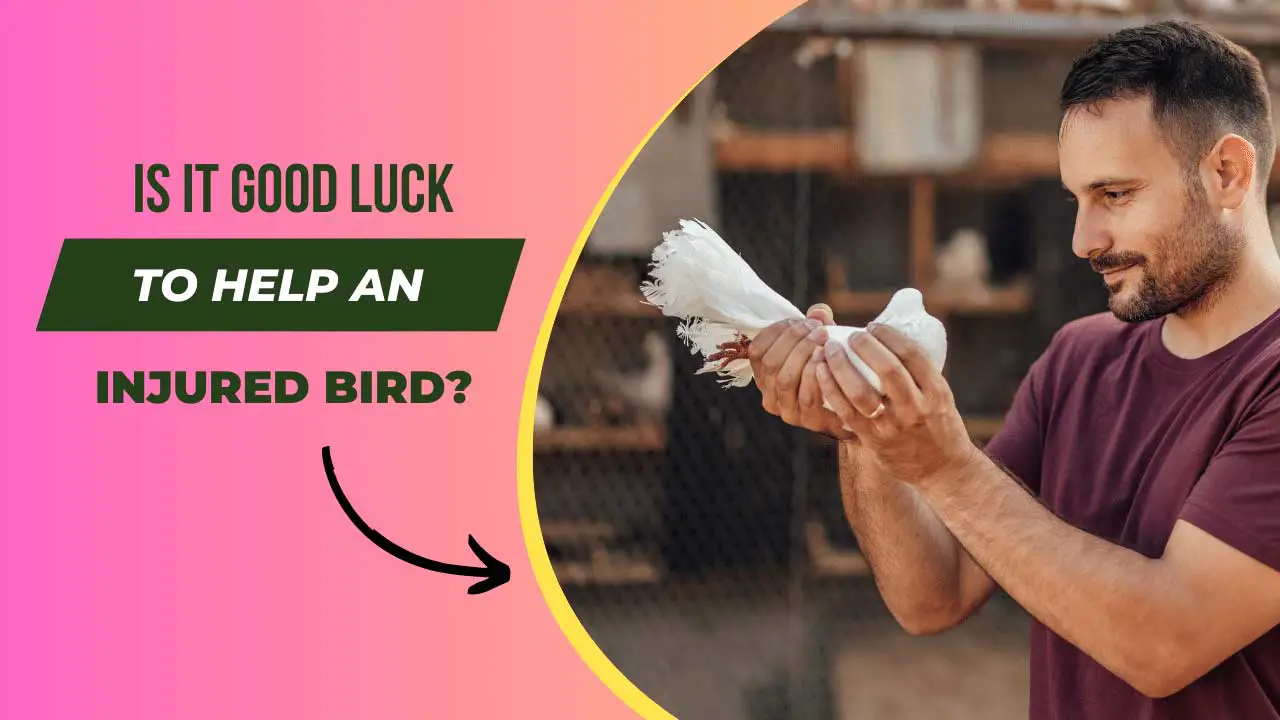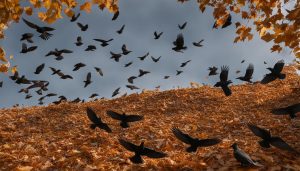Animals, especially birds, have always found a unique place in the labyrinth of folklore and cultural beliefs. Birds, from the ancient Egyptian civilization to indigenous tribes, are seen as messengers from the spiritual realm, omens of good or bad luck, or symbols of freedom.
Among many, a fascinating belief is that aiding an injured bird will bring good luck. But does helping our feathered friends bring us good fortune?
Does any scientific evidence back this? What steps should you follow if you encounter an injured bird? We’ll dive into these and more in this in-depth exploration.
Contents
- 1 The Superstition: An Historical Perspective
- 2 The Science Behind the Superstition: Psychological Rewards and Well-being
- 3 What to Do If You Encounter an Injured Bird?
- 4 The Risks Associated with Helping Injured Birds:
- 5 The Other Side of the Coin: Is It Bad Luck to Help an Injured Bird?
- 6 Concluding Thoughts
- 7 FAQs
The Superstition: An Historical Perspective
The notion that helping an injured bird brings luck traces back to antiquity when humans lived in close communion with nature.
With their ability to soar high above the ground, birds were seen as symbols of hope and freedom.
Helping an injured bird was a noble deed, believed to restore its freedom and hope and, in turn, yield a good fortune for the benefactor.
Also read: Is it good luck if a bird poops on you?
The Science Behind the Superstition: Psychological Rewards and Well-being
Though no concrete scientific evidence supports the correlation between aiding an injured bird and good luck, research suggests that such acts positively impact our psychological well-being.
Numerous studies show that volunteering to help animals can reduce stress, improve mood, and foster a sense of connection to others.
Assisting an injured bird can bring about feelings of accomplishment, empathy, and satisfaction, contributing to our emotional and psychological wellness.
What to Do If You Encounter an Injured Bird?

If you stumble upon an injured bird, the first action is to assess its condition. If the bird is visibly distressed – bleeding or showing signs of pain – take it to a wildlife rehabilitation center immediately.
If the bird’s condition doesn’t seem immediately threatening, you may offer help. Identify the bird species and the nature of its injuries. If you’re uncertain, consider capturing the bird’s image to share with a wildlife expert for advice.
Should the bird be bleeding, apply pressure to the wound with a clean cloth to stem it. If it appears cold, ensure it is placed somewhere warm and dry.
A small, dark box can provide a safe space when a bird cannot fly. Include food and water, and keep the box in a quiet, undisturbed area until the bird can be transported to a rehabilitation center.
The Risks Associated with Helping Injured Birds:
Helping an injured bird is noble, but it’s not without risks. Potential dangers include exposure to avian diseases and the risk of injury if the bird is scared or distressed.
When handling the bird, you can minimize these risks by wearing gloves and a long-sleeved shirt. It’s better to let professionals handle the situation if it’s bleeding or visibly in pain.
The Other Side of the Coin: Is It Bad Luck to Help an Injured Bird?
Just as some believe in the good luck of aiding an injured bird, others worry it might bring bad luck. However, similar to its counterpart, no scientific evidence supports this superstition.
If concerns over potential bad luck plagues you, it’s perfectly acceptable to escort the bird to a wildlife rehabilitation center and leave its care to the experts.
Concluding Thoughts
While the belief that helping an injured bird brings good or bad luck is scientifically unfounded, the act’s positive impact on personal well-being is undeniable.
Such deeds can promote a sense of accomplishment, empathy, and satisfaction, ultimately enriching our emotional health.
If you find an injured bird, assessing its condition is crucial. It might be necessary to take it to a wildlife rehabilitation center or, under safe conditions, provide initial care yourself. However, always remember to protect yourself against potential risks.
Regardless of whether you believe in superstitions, aiding an injured bird can be an enriching experience.
It allows us to play a small part in preserving nature and the beautiful creatures that inhabit it, offering tangible benefits for both the bird and ourselves.
Also read other articles regarding birds good luck
FAQs
Are there specific bird species that are believed to bring more luck when helped?
No, no specific bird species are believed to bring more luck when helped. The superstition applies to injured birds in general, regardless of their species. Helping any injured bird is considered a noble and compassionate deed.
What if I am unable to locate a wildlife rehabilitation center?
Contact local animal shelters, bird rescue organizations, or veterinary clinics if you cannot locate a wildlife rehabilitation center. They may be able to provide guidance or assistance in finding the appropriate resources for the injured bird.
Can I keep an injured bird as a pet if it recovers?
Keeping an injured bird as a pet is generally not recommended, even if it recovers from its injuries. Birds are wild animals with specific needs best met in their natural habitat. It is illegal in many places to keep wild birds as pets without the proper permits or licenses.
Can I release the bird after it recovers?
Releasing the bird back into its natural habitat is the best course of action after it has fully recovered. It is important to consult with wildlife experts or rehabilitation centers to ensure the bird is ready for release and to receive guidance on the appropriate location.





